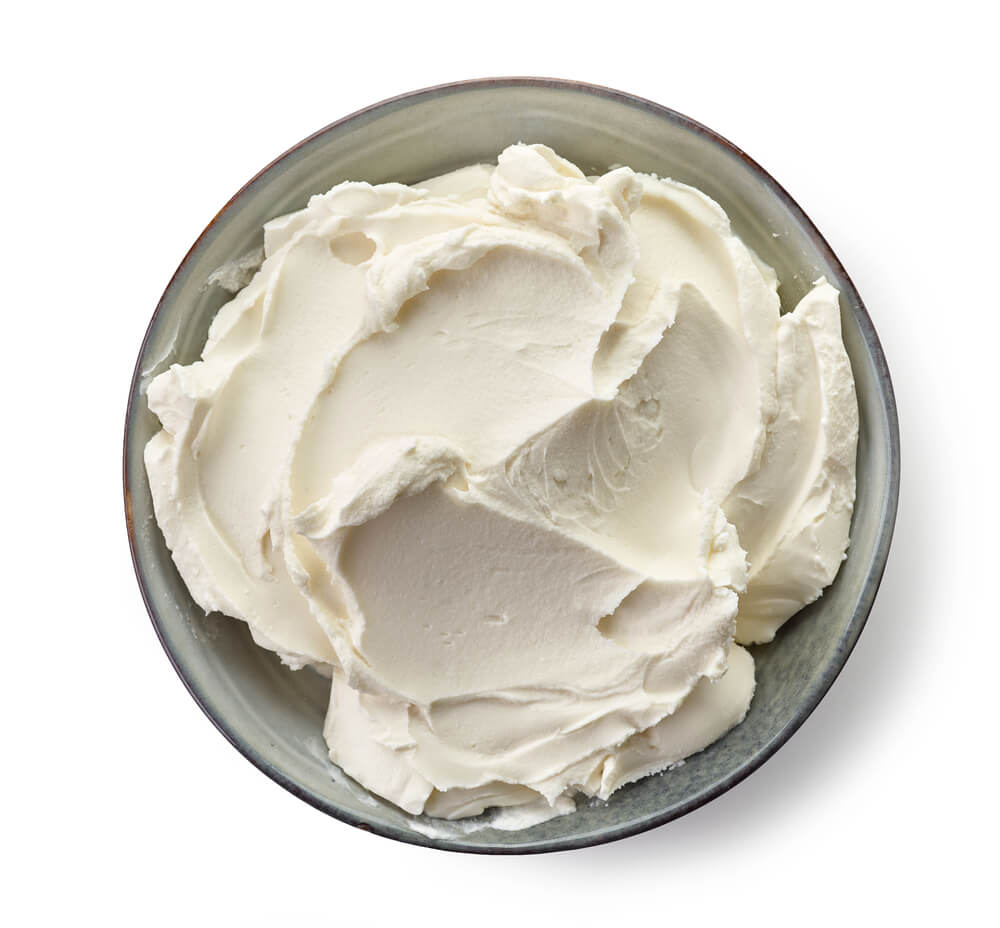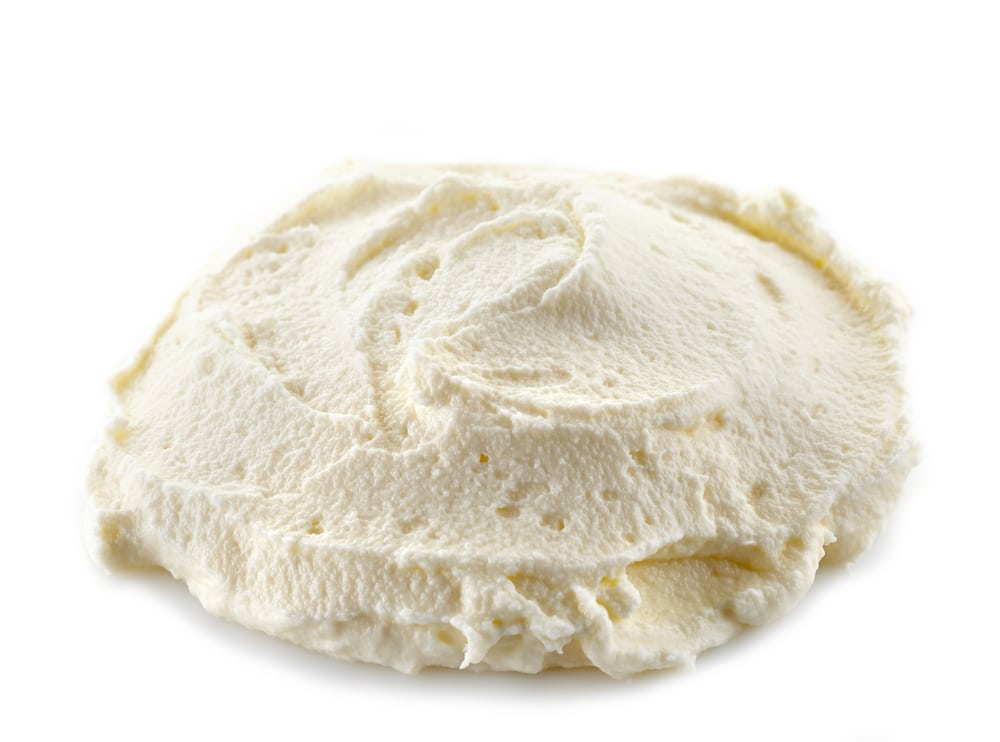Nobody likes to waste food, which is why the question, “can you freeze cream cheese?” is one that plenty of home cooks have asked. Fortunately, the answer is a resounding yes!
Cream cheese might not have a very long shelf life in the refrigerator, but it can be frozen and used months after its sell-by date. This guide will tell you everything that you need to know about freezing cream cheese and the best way to use it later on.

Can I Freeze Cream Cheese?
Yes, you can freeze cream cheese. Anyone wondering if cream cheese can be frozen should know that frozen cream cheese has the same delicious flavor as fresh cream cheese other than some textural differences.
The only genuine difference is that frozen and defrosted cream cheese might be a little less creamy than the fresh stuff.
Fortunately, it’s still perfectly usable for all sorts of different foods.
There are also a few ways that you can make your cream cheese freezing process a bit more successful, shielding your cream cheese from freezer burn or other issues. Next time you see a lot of cream cheese on sale, simply pick up a few bricks to put in your next cheesecake or delicious dip.
Although frozen and thawed cream cheese might not taste incredible on a bagel, it’s fantastic for baked goods.
Related: Can you freeze cottage cheese?
If you haven’t opened your cream cheese, you’re in luck. You can freeze it. The aluminum foil that shields most bricks of cream cheese will help it stay fresh in the freezer for long periods of time. What you want to watch out for is freezer burn, and fully encased bricks of cream cheese are far less likely to get it.
Freezer burn happens when frozen, or freezing food, hits the air. That’s why if you’ve opened your cream cheese, it’s imperative that you seal it as best as you can. This will help keep the cream cheese away from the air and protect it while it’s in your freezer.
You can always double-wrap your cream cheese in plastic wrap or additional aluminum foil if you don’t feel like the original packaging is as sturdy as it should be. It literally never hurts to have a little extra protection, and it will allow you to have peace of mind.
Some people put their cream cheese in vacuum-sealed plastic bags, but this isn’t entirely necessary. You can simply enclose it fully in several different layers.
The first step is to put your cream cheese in an airtight bag or a container that clicks shut. If you use a container, make sure that it’s totally watertight. This will ensure that it’s also fully airtight.
If you have any doubts, simply put a little water in the container and flip it over. Regardless of how airtight it is, you should still wrap it in a little extra aluminum foil or plastic wrap just to make entirely sure.
You should also date the package so that you know when you put the cheese in your freezer. Although it will last for a while there, it will not keep indefinitely.
It doesn’t matter if your cream cheese is plain or flavored; both varieties will last in the freezer if you take the proper steps to ensure that they are packaged correctly.
Finally, placement matters. Put your cream cheese somewhere where it will be less likely to be moved around. Moving it might disturb the packaging, and you don’t want to expose it to freezer burn or have a situation where you are constantly thawing and refreezing it.
Once it’s in there, it should stay in there until you are ready to use it.
How Long Will Cream Cheese Last in the Fridge/Freezer?
Cream cheese does not last very long in the refrigerator. Realistically, you can expect it to last about ten days before going bad if it’s open.
Unopened cream cheese might last for a month, although this depends a lot on the variety of cream cheese and where it is in your refrigerator.
This product’s short shelf life means that most people think that they can’t stock up on cream cheese even when it’s on sale.
Fortunately, you can keep cream cheese in your freezer for much longer. Cream cheese can last for six months in the freezer if you properly store it.
If you’re buying cream cheese in bulk, it’s best to store it right away in its original wrapping, with an extra layer of plastic or aluminum foil around it to protect it further.
If done correctly, the answer to the question “can you freeze cream cheese” is yes!
Related: Can you freeze feta cheese?
How To Tell if Your Frozen Cream Cheese is Bad
Even if you do everything right, you still might wind up with bad cream cheese. Needless to say, you should never use bad cream cheese because you could get sick. If there’s even a question of whether or not your cream cheese is bad, err on the side of caution.
If your cream cheese is fresh and refrigerated, it should be a slightly off-white color, and the texture should be creamy and spreadable. Frozen cream cheese will not have this texture, but it should still have a similar color. If your cheese is very yellowish, or if it has some green mold sprouting on it, it’s almost certainly bad.
Bad cream cheese will also smell sour and may have a cracked or bumpy surface. It could also have a bit of water accumulated on the top of the cheese or be slimy to the touch. If you experience any of this with your cream cheese, throw it out right away.

What To Do With Frozen Cream Cheese
Although frozen cream cheese is slightly texturally different than fresh cream cheese, it’s still almost just as versatile. Don’t try to spread frozen cream cheese on your morning bagel. Unfortunately, you will be disappointed. You can use it in plenty of recipes, though.
First, you have to thaw out the cream cheese. You can microwave it or melt it on the stove. Many people like to use the microwave because it seems to even out the texture a little bit more.
In order to do this, you need to thaw out the package of cream cheese. Pop it in your refrigerator for about a day to fully defrost. Trying to microwave frozen cream cheese could make it lumpier or watery.
Once it is defrosted, you can pop it in the microwave. Put it in there for about ten to twenty seconds. Give it a good stir, and then put it back if you want to.
Stirring the microwaved cream cheese will allow you to adjust the consistency. You don’t want to ultimately boil it, so make sure that you only put it in for a few seconds at a time.
Alternatively, you can put it on the stove. Similarly, let your cream cheese defrost in the refrigerator, then fill a saucepan with water and fit a second one on top of it. Basically, you want to make a double-boiler. Put the cream cheese in the second pot above the water, and turn the stove on.
The advantage of this is that you will be able to stir the cream cheese constantly and get the texture and consistency that you want. When you microwave the cream cheese, you’re really working with guesswork. The stovetop method might be a little bit more difficult, but it does yield excellent results.
No matter which method you choose, remember that the objective isn’t to cook the cream cheese. It’s simply to ensure that it’s reaching the consistency that you want. Don’t put cream cheese in a pan and turn the burner on. You’ll scald it and render it totally unusable. Instead, try one of these two methods and get ready to enjoy your cream cheese.
You can use your freshly defrosted cream cheese in tons of different recipes. One of the most popular ways to eat it is with casseroles and baked dishes. Virtually any dish that calls for cream cheese but doesn’t require it to be fresh can benefit from the frozen cream cheese.
The key is finding one that doesn’t necessitate a specific texture. Baked egg casseroles, hot dips and other recipes are excellent.
Frozen cream cheese works well in spinach artichoke dip, especially because you can marry it with a variety of different cheeses like mozzarella and parmesan. The different textures of those cheeses and the fact that you cook the cream cheese dip, to begin with, render the consistency difference nearly unnoticeable.
Additionally, you can also stir defrosted cream cheese into curries or sauces. It’s a perfect substitute to coconut milk and can even help to make Thai curries sing. Experiment with it, and use it where you would otherwise use dairy products. It’s surprisingly adaptable to virtually any recipe that calls for a cream sauce.
Now that you understand that you can freeze cream cheese, it opens up a whole new world of possibilities. Freezing cream cheese is easy if you follow these guidelines, and you can do so many different things with it. Never waste a brick of your cream cheese ever again.






